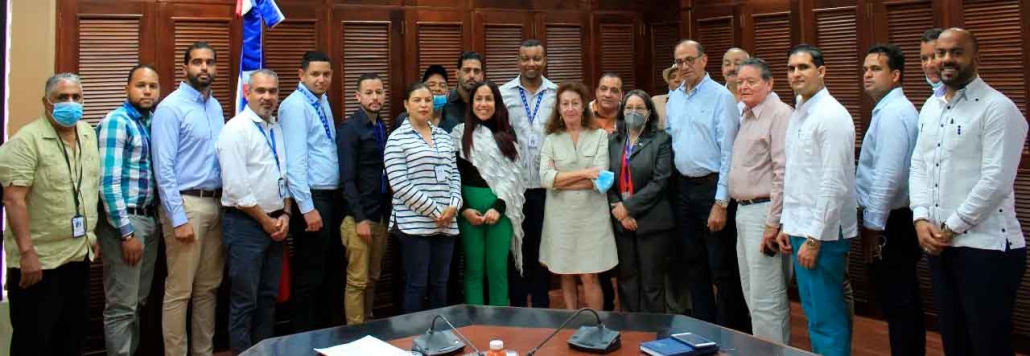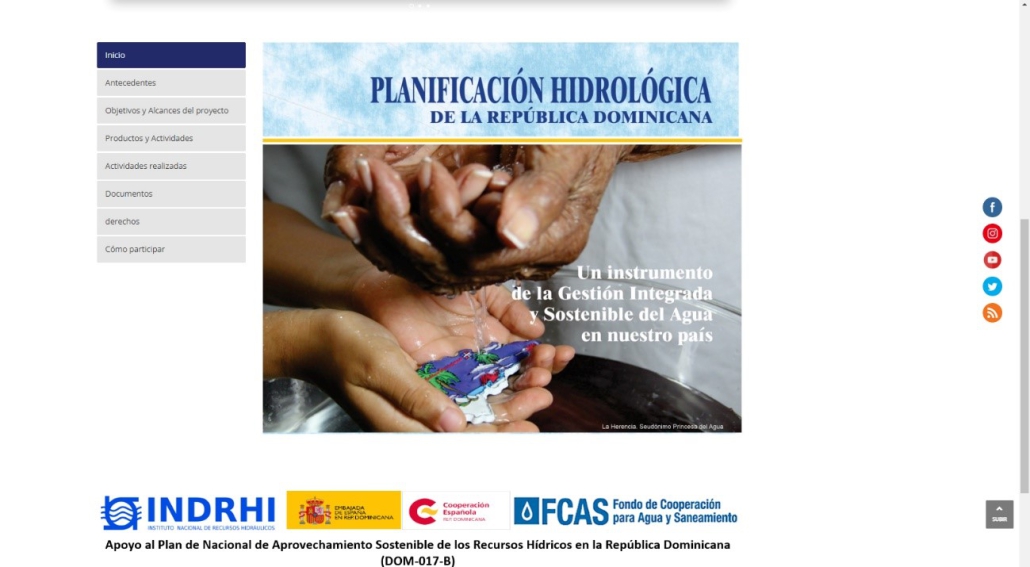Activities 2022
Another key aspect was formalizing an outsourcing plan for the technical and commercial management of services. To this end, a Technical Assistance by Results (ATPR) contract was applied in the Province of San Cristóbal to repeat the experience in other provinces.
Another ongoing program is to support the National Plan for the Sustainable Use of Water Resources in the Dominican Republic (DOM-017-B). This initiative has a bearing on institutional strengthening, and during its implementation (which continues until October 2023), multiple meetings, seminars, training, and visits have been held. Throughout 2022, work has been carried out on various aspects of Integrated Water Resource Management, institutional strengthening, and legislation to prepare for the future development of the Plan.
In 2022, representatives of the country’s National Water Resources Institute participated in the annual meeting of CODIA (Conference of Ibero-American Water Directors) to share their progress and status.
In 2022, the program to Ensure the human right to water by reducing vulnerability in the Municipal District of Pedro García, Province of Santiago, with a total budget of 730,000 euro (of which 582,000 are donations from the FCAS), began to be implemented.

Presentation of the program by AECID to representatives of the Pedro García community.
As Santiago is the second most affected province in the country due to the incidence of COVID-19, it was decided to establish an emergency plan to ensure access to drinking water for rural populations at all times in the event of a contingency, establishing a pilot program in Pedro García that could be replicated in other rural areas of Santiago and the country. A presentation of the program was held in March 2022 to the entire CORAASAN team and representatives of the beneficiaries (city council, associations, private companies, etc.).
The activity allowed for discussion and the exchange of expectations among the participants, helping to generate a good atmosphere and motivating participation to achieve the expected results and products. In addition, the bidding documents and terms of reference have been prepared to begin contracting, but the international inflation increase has complicated the process.
The objectives of the program are to establish a diagnosis of the water and sanitation sector in the rural area of the district; to compile the threats, challenges, and lessons learned regarding the problems that hinder the adequate provision of the service; to promote the participatory preparation of a General Rural Emergency Plan for water and sanitation in the province; to carry out the main mitigation works required and identify the infrastructure with the most significant deficiencies in the face of possible emergencies; and to prepare the bidding processes for the works.
COUNTRY CONTEXT
The drinking water and sanitation situation still faces many challenges in the Dominican Republic, especially regarding continued access to quality water and adequate sanitation.
Since 2009, the FCAS has allocated 26 million euro in grants for the different programs implemented in the country. The lines of action have been related to governance, the implementation of Human Rights to Water and Sanitation, and rural and peri-urban development, as well as the strengthening of the sustainability of the systems.


